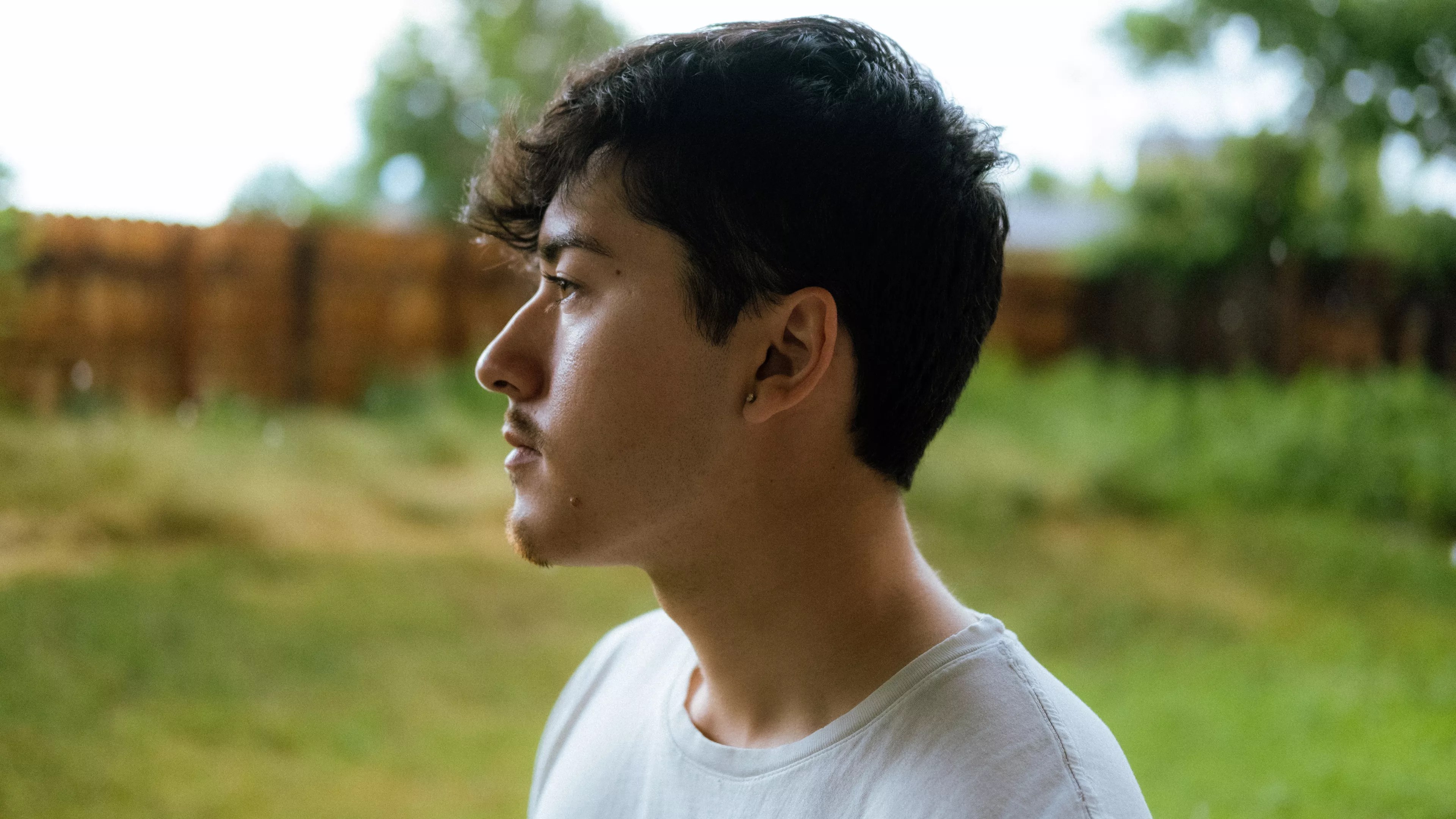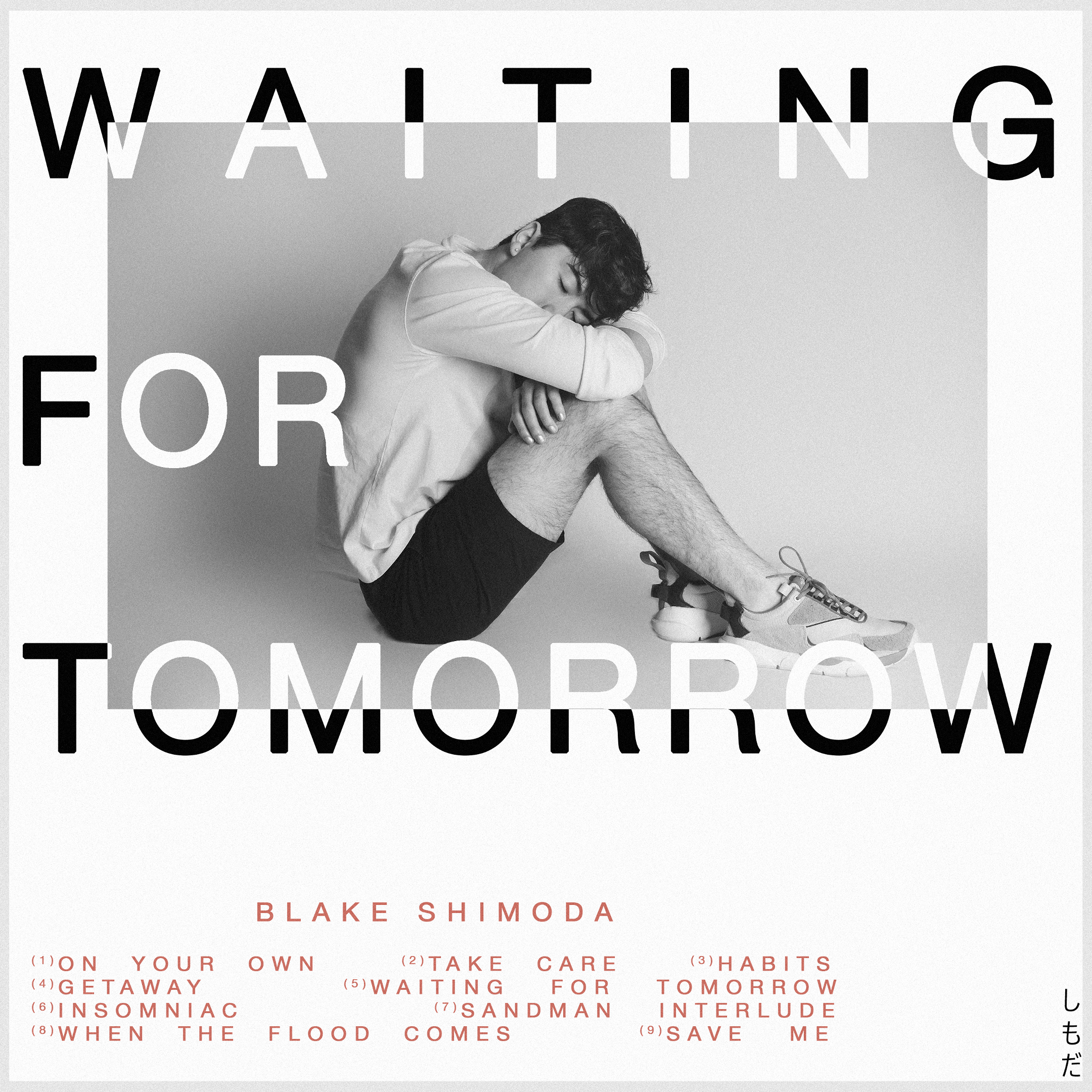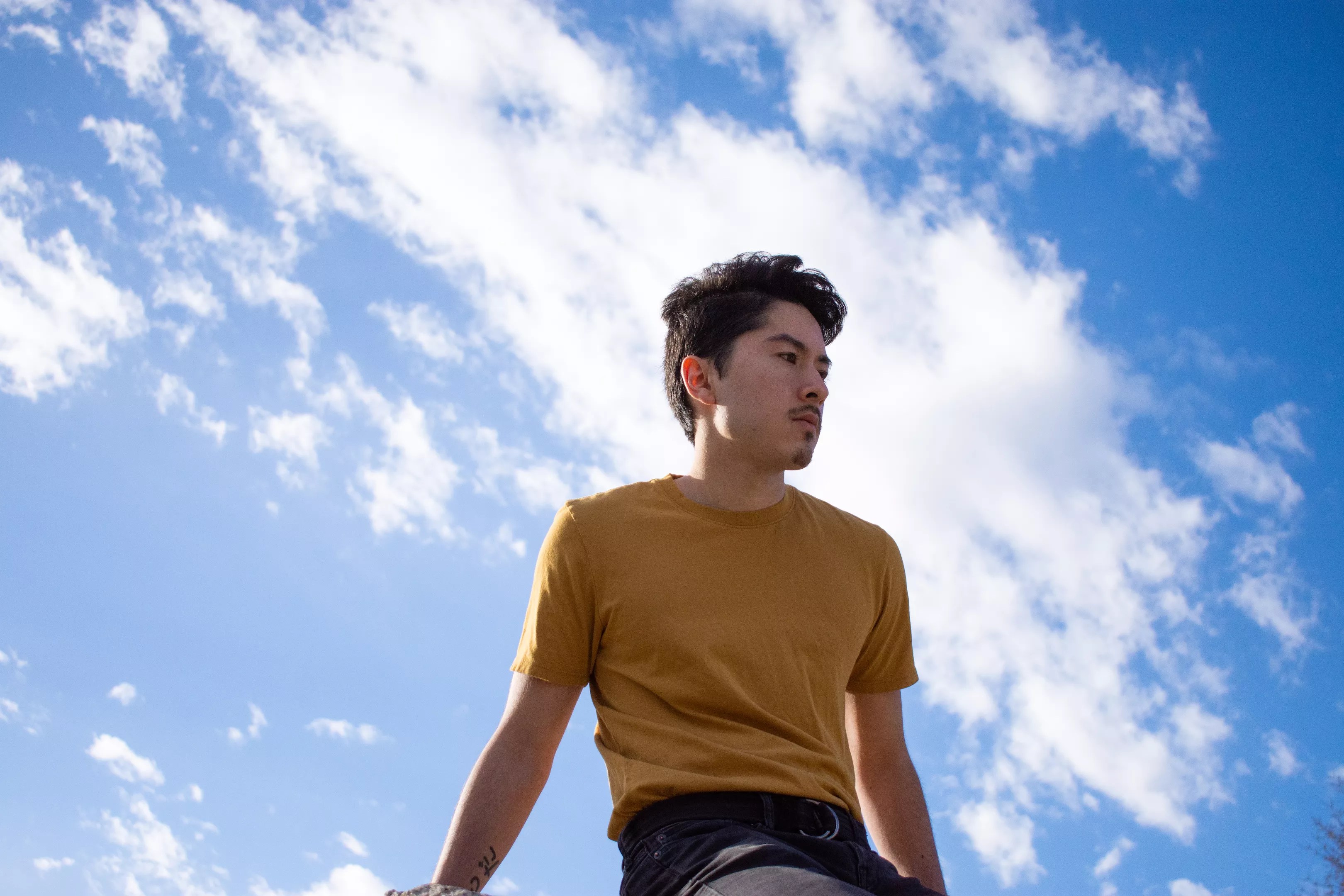
Makkawi Makkawi

Audio By Carbonatix
If you’ve listened to the gentle alt-pop on 25-year-old Blake Shimoda’s debut album, Waiting for Tomorrow, you definitely wouldn’t expect that his deep love of music began with Outkast. But as a kid growing up in Springfield, Missouri, Shimoda (born Blake Toshihiko Williams; Shimoda is his mother’s maiden name) didn’t listen to much music at all.
“A lot of people who I meet who are musicians, they’re like, ‘Oh, yeah, my dad raised me listening to D’Angelo,’ or this or that, and that never really happened for me growing up. I didn’t really listen to music, because you kind of just do what your parents do. I grew up in such a quiet household that I never realized it was weird until I went to music school and everyone had these experiences with music,” Shimoda says. “At one point in time, my friend’s mom was driving me somewhere, and she played Outkast in the car, and I was like, ‘Yo, what is this? This is amazing! I’ve never heard anything like this!’ That would have been like, third grade. That’s one of my earliest memories of music, was hearing ‘Hey Ya’ in the car.”
That moment was the beginning of Shimoda’s circuitous journey toward becoming a musician. “I never really had this big thing where I was like, ‘I want to do music!’ It was a slow build of different interests that kind of collected into what they are now,” he explains. “It’s funny – people ask me, ‘What got you into music?’ And the best answer I can give is ‘Guitar Hero.'”

Shimoda had never discovered his own singing voice until he was a senior in college.
James Cudjoe and Makkawi Makkawi
We’re thankful for you. Are you thankful for us?
We feel thankful for our staff and for the privilege of fulfilling our mission to be an unparalleled source of information and insight in Denver. We’re aiming to raise $50,000 by December 31, so we can continue covering what matters most to this community.
Help us continue giving back to Denver.
After trying (and failing) to start a band several times in high school, Shimoda was introduced to electronic music and, with the help of free beatmaking software, fell head over heels with producing. With some advice from online forums, he was able to teach himself through trial and error. “I downloaded [the software] and just became so obsessed with it. I could do it on my own; I didn’t need a full band or lessons. That was the thing where I was like, ‘This is it for me. This is what I want to do,'” he says. He applied to the recording arts program at the University of Colorado Denver, and moved to Colorado after high school to begin his formal education.
After about three years of exclusively making electronic music, Shimoda wanted to branch out. So when a classmate at CU Denver asked if he would be open to collaborating with a rapper, Shimoda jumped at the opportunity. He slowly made the shift from making his own EDM to producing for other artists. However, he soon encountered the same issue that he had in high school: getting stood up by potential collaborators.
His solution was simple: If he couldn’t find an artist consistent enough to work with, he would just have to become that artist himself. So he signed up for two songwriting classes, where it was required that the students sing and record their own songs. “I had never sung in my life. Prior to that, I didn’t even sing in the car or the shower,” he recalls.
Listening to his voice now, it’s shocking that Shimoda was completely unaware of his own natural talent. In fact, he was just about the last person to be convinced of his stunning vocal abilities. For the songwriting class’s midterm, Shimoda wrote, recorded and mixed a track that got rave reviews from his professor, classmates and friends, much to his surprise. “I wasn’t expecting that at all,” he reflects. “I wasn’t really pursuing being a songwriter at all at the time; I was just doing it to learn how to do it, because I didn’t have anyone else to make songs with, so I figured I would just make my own.” Later, he released the midterm track as his very first single, “Discarnate.”
A chance encounter with a higher-up at Spotify gave Shimoda the push he needed to finally see himself as more than a producer. At the time, he was mostly producing for a good friend of his, recording artist Rezlo (aka Greg Wresilo), and an old music-business professor invited the two of them over to play some songs for a guest, who just happened to work for Spotify.
“I was working on this song called ‘Be With You.’ It was one of the first things that I felt like was moving in the right direction of where I wanted to go as an artist,” Shimoda says. “We played a couple of songs that Greg and I had been working on, but then I put on ‘Be With You,’ and [the Spotify exec] took his headphones off and wheeled his chair over and was like, ‘What’s this?'”
“Discarnate” was then posted on one of Spotify’s playlists, and by the next day, Shimoda’s Spotify had over 8,000 new streams. “That was the moment for me where I realized people actually like the stuff that I make as art,” he says. “They like what I have to offer as me, not just as a producer.”
Shimoda released “Be With You” in early 2020, but then found himself in a quarantine-induced slump. “I get a lot of my inspiration from other people usually, just from conversations,” he says. “I lost my job, too, so I was just there all day by myself. I was feeling so uninspired for a while. So I just started writing music that was a little more personal. I really just hunkered down and was making a lot of music, feeling a lot of feelings.”
Unable to draw inspiration from daily interactions with other people, Shimoda began to look inward, which brought a new sense of vulnerability to the EDM-influenced alternative pop music on his debut album, Waiting for Tomorrow, which was just released and is already wildly popular.
“You never really know what someone is feeling until they tell you, which is why it’s a lot safer for me to write about things I had talked about with other people already,” Shimoda admits. “Whenever I write something personal, I don’t know if anyone else feels the way I do, and it’s scary. The whole album is kind of in that territory for me, where I’m exploring a lot of feelings. In retrospect, it was really irrational fear. I’m generally a pretty reserved person. I grew up in a very quiet household; my parents are super quiet, too, so I’m just not comfortable all the time with being heard. That was the biggest thing I had to get over.”

Blake Shimoda’s debut album, Waiting for Tomorrow.
Courtesy of Blake Shimoda
On Waiting for Tomorrow, Shimoda dissects the mental cost that stems from his generation’s obsession with “hustle culture,” where the pursuit of a passion demands constant sacrifice. As he laments on the standout track “Habits”: “What if it’s all for nothing?/What if I get there but I gave up everything I wanted just to have something?”
“So much is expected of you if you want to pursue something and really, really succeed at it. You’re expected to give up all of your life,” Shimoda says. “I feel the need to do that, but I don’t think that’s right. I was going through this realization, like, why would I work so hard just to give up everything that makes me happy? You have to find the balance, and that’s really hard to do, especially when you’re trying to learn everything else about being an adult, all at the same time.”
The unique position of early adulthood, where the desired goal is clear but the path is murky, inspired the name of Shimoda’s debut album. “The title Waiting for Tomorrow is, to me, a twofold thing,” he explains. “The first one is I’ve struggled a lot with mental health over the course of my life. I’ve struggled a lot with depression, specifically, since I was a teenager. I find myself having these days where I just feel so bad all day, and there’s nothing I can do. I feel so helpless, and at the mercy of whatever happens in my head. All I can do is wait for it to be over, waiting to wake up tomorrow. I found this big parallel between that and the life stage where I’m at in general – in this transitional period.
“I kind of made [the album] from [the mindset that] I think it’s good to learn and grow and change and get better at things, but at the end of the day, not everyone is going to be around forever,” he continues. “And you’re going to wish you had spent more time with the people you care about.”
The fear of running out of time with loved ones was something at the forefront of Shimoda’s mind while he was creating Waiting for Tomorrow. His mother was diagnosed with cancer at the beginning of COVID, and since she was in Missouri, he was unable to see her at all during her treatments. “She was so scared, and I’d never really considered the fact that I’d lose her. I was coming to terms with, ‘Wow, they’re not going to be there forever,'” he says. Feeling frustrated and helpless, he channeled his feelings into his most personal song yet, ‘Take Care.’

Shimoda’s beautiful vocals will make you glad he decided to transition from producer to artist.
Lindsey Rister
“‘Take Care’ is about her, and coming to that realization,” he says. “It was living out the fantasy of being able to do something to make her better, because I felt like I couldn’t do anything. People really, really connected with it.”
The overwhelming reaction Shimoda received to ‘Take Care’ affirmed that he has finally found his niche in music: deeply personal songs that speak to universally felt anxieties.
“I realized, after making that song and playing it for some people and they had such a strong reaction to it, that’s what I want to do. I want to make stuff that’s very personal to me, insights on things that I’m learning about myself and about life, because that’s what everyone else is doing,” he concludes. “I’m working really hard toward this goal I have, and I’ve come a long way from where I started, but I know I’m nowhere near where I want to be yet. I think a lot of people are in that exact same position. Every day I’m a little further than the day before, but it’s just exhausting. Like I know where I want to be, I know what I need to do to get there. I just have to be so patient with myself, and so patient with everything.”
Blake Shimoda’s debut album, Waiting for Tomorrow, is available now for streaming and download on all music platforms.